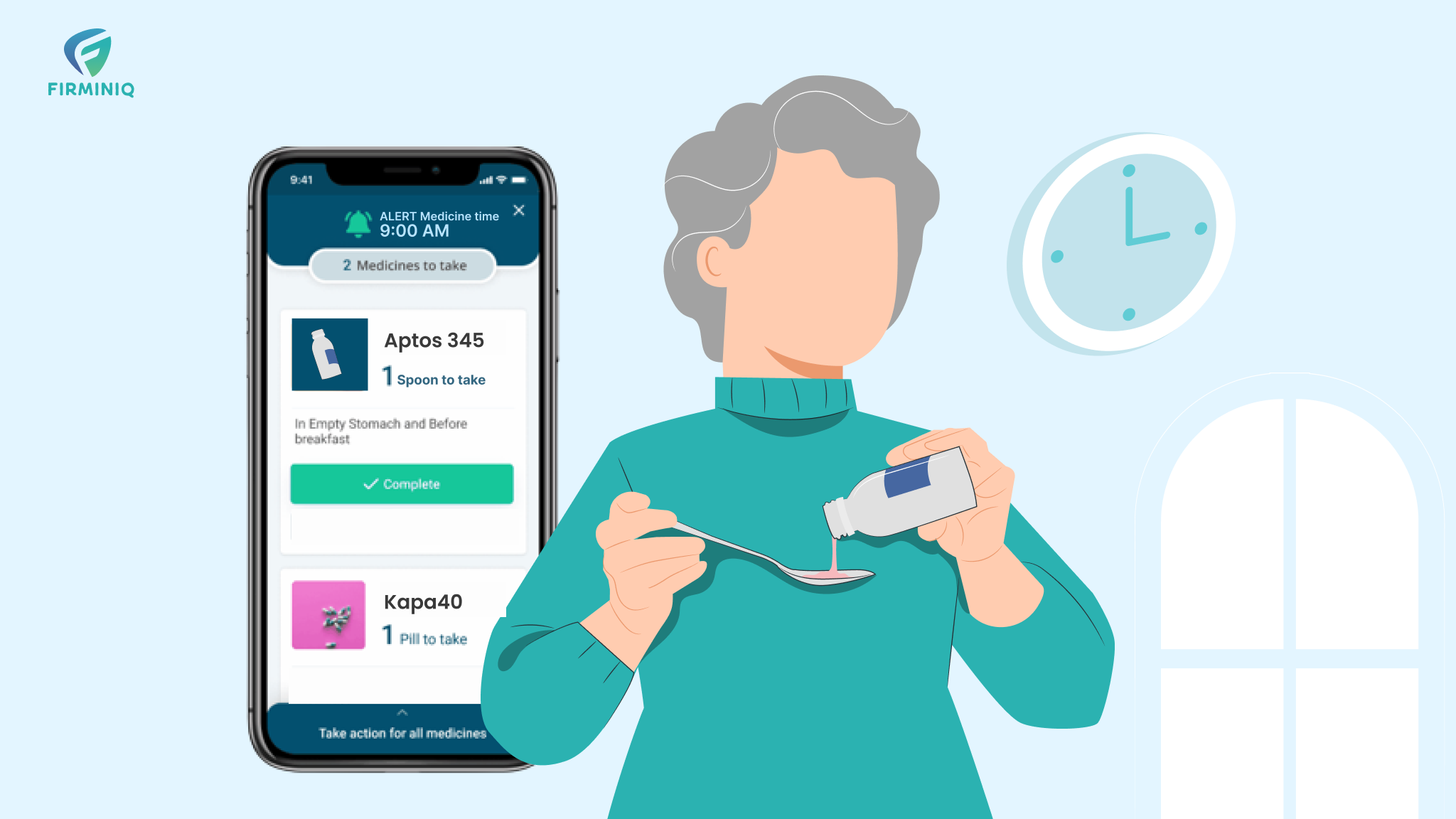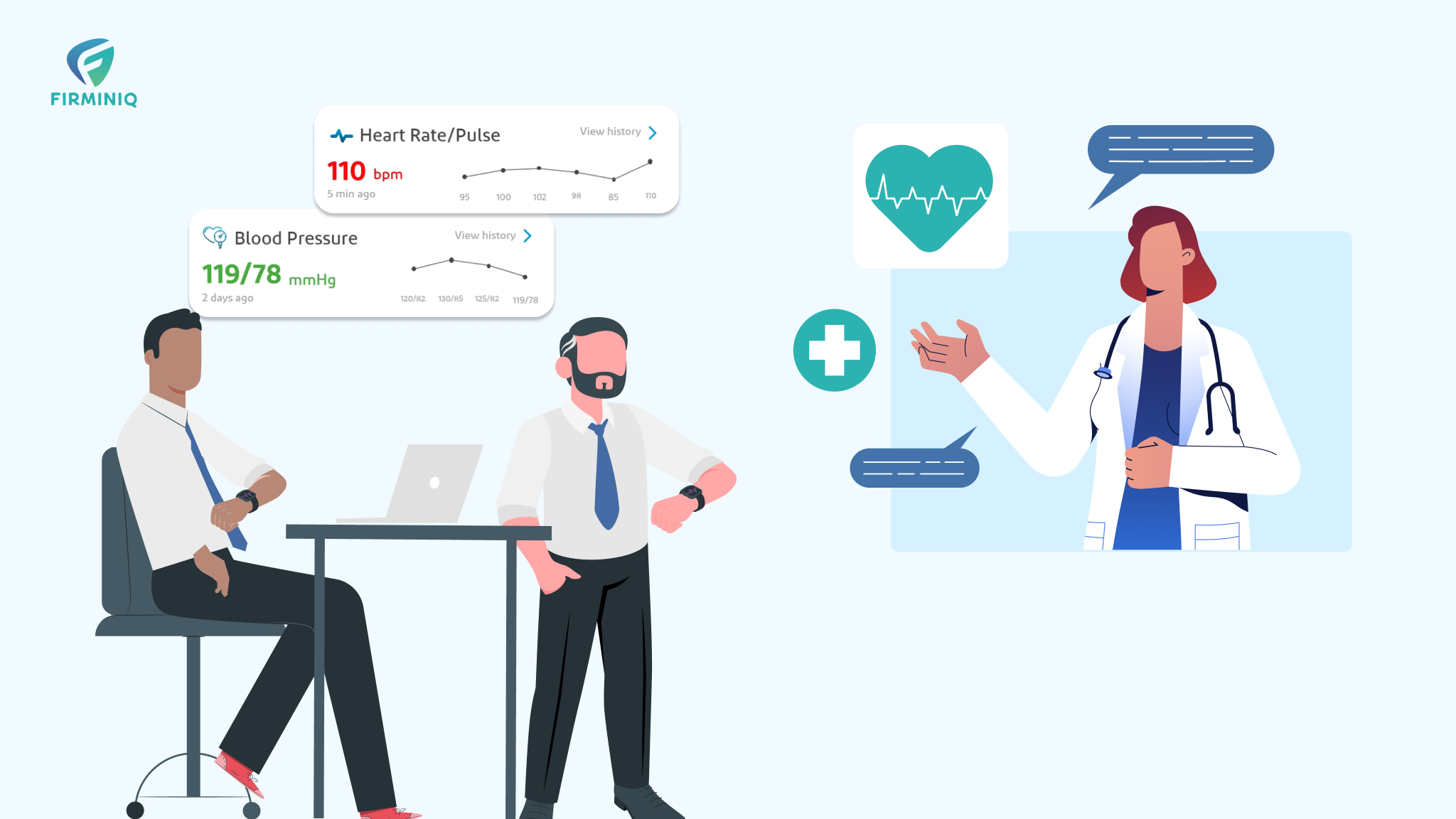As the elderly population grows, medication management becomes increasingly vital to maintain their health and well-being. “Chronic diseases are the leading causes of disability and premature death among the elderly population in India. Seventeen percent elderly in rural areas and 29% in urban areas suffer from a chronic disease.”- NLM
Not sticking to the medication regimen can lead to many complications for patients, especially with chronic illness. As people age, the medicines prescribed by the physician often increase, causing trouble for elderly patients to adhere to the prescribed medications. Physical limitations, cognitive impairment, and other factors can also lead to non-adherence, worsening health outcomes, and an increase in hospitalizations.
Remote Patient Monitoring (RPM) has emerged as a robust solution that offers support to the elderly population and helps them adhere to their medicine regimens. It significantly improves medication adherence, improves the quality of life for patients, reducing hospitalizations and emergency visits. The blog highlights the importance of RPM in improving adherence to medication regimens, the challenges elderly people face to stick to the regimen and the overall benefits that accrue.
Exploring the Barriers to Medication Adherence in Adults
When people start to age, the complexity of their health conditions increases. A few barriers that make it challenging for the elderly patients to adhere to the medications include:
1. Complications in Medical Regimen
As seniors typically deal with multiple chronic conditions, their treatment often involves a complex mix of medications, each with its own dosage and schedule. The diseases include diabetes, hypertension, heart disease, etc. The medications may be prescribed by different healthcare providers (specialists, general practitioners, or others), while leading to miscommunication and lack of coordination in the overall patient’s treatment plan.
Many things need to be taken care of, such as the number of pills to be taken, the right timings, and specific instructions. For elderly citizens, it is quite a challenge to remember them all. The result is missed doses, severe health risks, increased hospitalizations, and incorrect doses, all of which can lead to adverse outcomes.
2. Cognitive Decline
Memory deterioration is a common part of aging and can further lead to problems like dementia, Alzheimer’s disease, etc.
Patients may struggle to remember whether they have taken the medication or not. It can either lead to skipped dosage or consumption of dosage more than once. For patients with severe cognitive issues, it can lead to complete non-adherence to medications. Although friends and family can help the patients with reminders, it is still an added responsibility on their shoulders.
3. Physical Limitations
“Older adults are at greater risk for multiple physical and mental health challenges, resulting in disability and death. Some of the most common problems at older ages include physical impairments, functional limitation, depressive symptoms, and poor cognition.”- NLM
These limitations can significantly impact elderly patients’ ability to manage their medications effectively, making day-to-day tasks like handling prescriptions and dosages increasingly difficult.
Also, physical limitations for the patients cause a setback for them to manage the medications effectively. Pain in joints, conditions like wrist pain, and arthritis can make it difficult for elderly people to handle small pills, open bottles, handle injections, and more. Also, vision impairment is another issue that makes it difficult for them to read the prescription properly.
4. Emotional Barriers
As per National Library of Medicine, “A meta-analysis of 74 studies, including 487,275 elderly individuals, found the worldwide prevalence rate of depressive disorders to be between 4.7 to 16%. This study indicates a comparatively higher prevalence of geriatric depression in India.”
This disorder can directly impact their mental well-being, making it more challenging for them to stay engaged in their own healthcare. The feeling can lead to emotional neglect, which results in a lack of focus for the elderly patients to take care of themselves. Addressing these barriers is vital to ensure that elderly patients receive the care and support they need to follow their treatment plans.
How RPM Helps to Support Medication Adherence for Elderly Patients
RPM and the associated tools help address the barriers that influence medication adherence for elderly patients. With virtual connectivity, the involvement of caregivers, and support for their mental health, elderly patients can ease the feeling. Let us discuss the points in detail.
1. More Personalized Care
RPM can integrate with smart pill dispensers to help patients dispense the right dose of medication at the right time. Also, the devices can be tailored as per the specific needs of the patient, their medication schedules, and health needs.
The RPM system can track the medication supply and send automatic refill reminders to both the patient and their caregivers. This ensures that the patient never runs out of their medication.
2. Customized Support and Feedback
RPM continuously collects and tracks data and vitals in real-time. RPM offers algorithms that analyze the data and remind elderly patients of non-adherence. It offers customized support to elderly patients by tailoring interventions as per the specific healthcare needs, conditions, and daily routines. For example, if a patient misses his evening dosage continuously, RPM helps flag the pattern, indicate physician of the same, and helps prevent non-adherence of the medication. Also, with regular insights and real-time alerts, RPM enables providers to act smartly and quickly to ensure medication adherence.
3. Involves Caregivers
RPM has features for friends and family that give caregivers access to the patient’s health data and medication schedules. Apart from patients, caregivers too can receive reminders about missed doses. They can step in and provide the necessary support to the patient. The caregivers are notified of the dosage and patient schedule while ensuring that the patient adheres to their medication regimen.
4. Mental Health Support
Mental health and support hold the utmost importance for elderly patients. RPM offers regular interaction of physicians with elderly patients. Also, the programs can integrate counseling or support group sessions for the patients which can address their emotional well-being and ensure a better overall well-being.
Regular interactions with healthcare professionals through RPM can provide the encouragement and motivation that elderly patients need to adhere to their medication regimens. These consistent check-ins can also serve as a reminder that their health is being monitored and valued.
Benefits of Ensuring Medication Adherence in Elderly with RPM
From offering improved health outcomes to reduced costs, RPM offers plenty of benefits for elderly patients. A few of them include:
1. Improved Health Outcomes
RPM helps elderly patients follow their prescribed treatments more effectively. This leads to better management of chronic conditions. When elderly patients adhere to their medication schedules, it helps prevent the worsening of their conditions, reducing the risk of hospital admissions or emergency room visits
2. Reduced Healthcare Costs
Fewer hospital admissions directly lead to lower medical expenses for both patients and the healthcare system. Also, with continuous monitoring and early intervention, their conditions can be managed more effectively, minimizing the need for expensive treatments that arise from the unmanaged patient’s condition.
3. Better Chronic Disease Management
RPM tools allow healthcare providers to monitor and manage chronic conditions in real-time, leading to more proactive care and earlier interventions. This ensures that conditions such as diabetes, heart disease, and others are controlled while minimizing the impact of these diseases on the patient’s life.
4. Enhanced Patient Engagement
PM empowers elderly patients to take control of their own health by providing them with the tools and insights they need to manage their medication regimens. This increased autonomy can boost their confidence and engagement in their care.
Epilogue
RPM does not only help track medications schedules-rather it offers a comprehensive approach that addresses the challenges of the elderly people. Integrating RPM helps create a support system that ensures elderly patients can stick to their medication regimen and feel motivated.
If you are looking to improve medication adherence for elderly patients or enhance your care services with the benefits of RPM, now is the time to act. Reach out to us!





